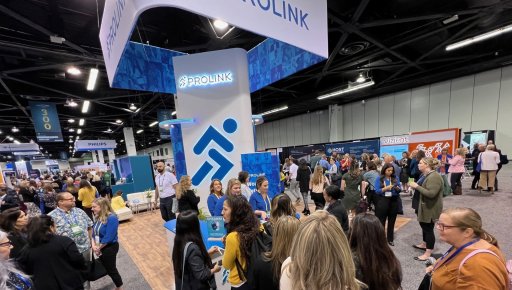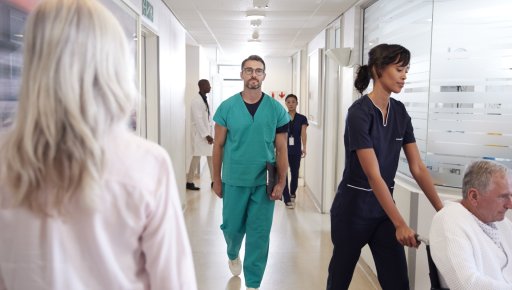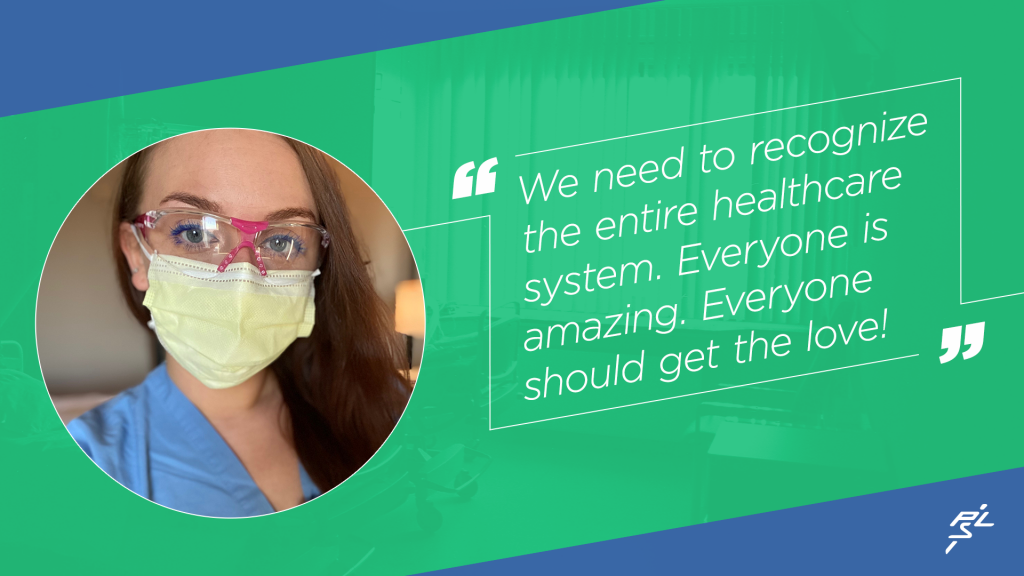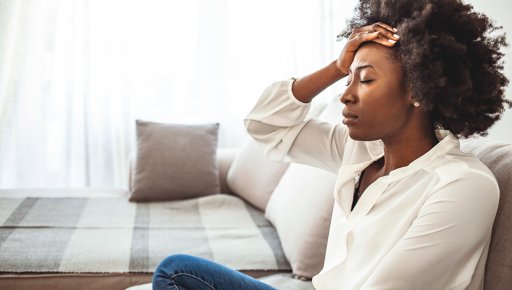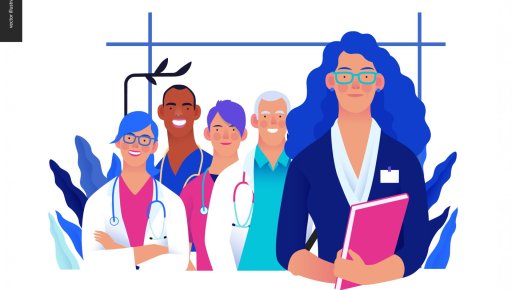What made you raise your hand to join the fight to combat COVID?
I had been looking into traveling for a while now. Being able to see new places while working has always appealed to me, but I never took the plunge. When all of these positions popped up and people were saying, “We really need your help now. We're looking for as many RTs as possible,” I just felt drawn to go. I can't really describe it. It was very much a calling.
Since this is your first time traveling, what has surprised you most about the traveling experience?
Honestly, I expected more differences. I've only worked at one hospital in Indianapolis. Obviously, I had clinicals at different hospitals, but I was learning so much back then. I guess I didn't pay a lot of attention to inner workings. Coming out here, I expected to have to learn a lot of new ways to do things.
I had a pretty short orientation, because they needed me to start immediately. I was nervous, but on the first night shift, I was like, “Oh! You know, this is actually pretty much the same!”
At the end of the day, respiratory is respiratory, and I found that I was able to jump in a lot more easily than I thought. It’s been a pleasant surprise, that's for sure!
What do you think enabled you to adapt so quickly to that transition?
I have to give credit to the hospital “raised me.” It's a great system and I feel like they have a nice structure that put a lot of good work ethic into me. I know how to do a lot of things because it's a bigger hospital. Overall, I have a lot of experience just from being there that has made a huge impact on how well I can transition into something new.
Is there anything unique about this assignment because of the pandemic?
It hasn’t been that different with this assignment in Boston, but only because Indianapolis got hit fairly hard before I left. I actually got to experience the COVID pandemic in Indy as well. We had been adapting to new rules from a respiratory standpoint to COVID, and there were a lot of them. I was able to learn while I was still in my home environment before I came to Boston. I had already taken care of numerous COVID patients before I left. So that was a bit easier of a transition.
What would you say is was the biggest learning curve?
That's a tough one! Every day is a learning experience with COVID patients. We don't know that much about the disease, and there's always new information. It’s up to us to stay updated. There is also a huge problem with misinformation being circulated, which can be confusing. We trust that the doctors and nurses are staying on top of that information.
Have you had moments where you're feeling overwhelmed?
I haven't gotten there yet thankfully, but of course some moments are harder than others. Since I got here, people have passed away from COVID, and it sucks because we did everything we could, but sometimes there's just no options left. I think people get into healthcare because they're “fixers” and they want to make a difference. They want to make people's lives better. I mean, it's truly very frustrating and disheartening because you can do everything you can and still get the worst outcome.
Are you able to take time to care for yourself?
It's hard, I won’t lie. Everything is shut down. I'm a very social person and even just being around people helps, even if I'm not talking to them.
I'm that person that will go sit on a porch at a restaurant, have a beer, watch the world go by. Instead, I'm trying to get outside as much as I can, go for a walk or on runs, because all of the gyms are closed too. I think being active is very good for mental and physical health. Not that I'm not also laying in my hotel bed and binging on Netflix sometimes. You just have to do that of course.
At least there's carry out. I'm discovering new food—and food makes me very happy too—so I'm getting to try a lot of new stuff.
I'm just trying to keep my mind active and hope for the best because there aren’t many options right now unfortunately.
Is there something that you would like to say moving forward?
I guess maybe beyond all this pandemic, everyone should wash their hands more frequently. We are going to have to accept wearing masks. People in some countries wear masks all the time. Especially when they’re not feeling well, they will wear a mask when they go out in public. Sometimes it can't be helped that you have to go out and do something when you're sick. Why not normalize that, you know?
The mask is not to protect you from others, it's to protect others from you.
Is there anything those of us not in healthcare can do to support you as a clinician better?
I think more recognition for people who are not nurses or doctors is key. We need to recognize the entire healthcare system—people working in environmental services, phlebotomists, radiologists, the list goes on. Everyone is amazing. Everyone should get the love! It genuinely helps to hear your support!
Thank you Vanessa for stepping up to the frontlines of the COVID-19 fight. We are so grateful for you!
